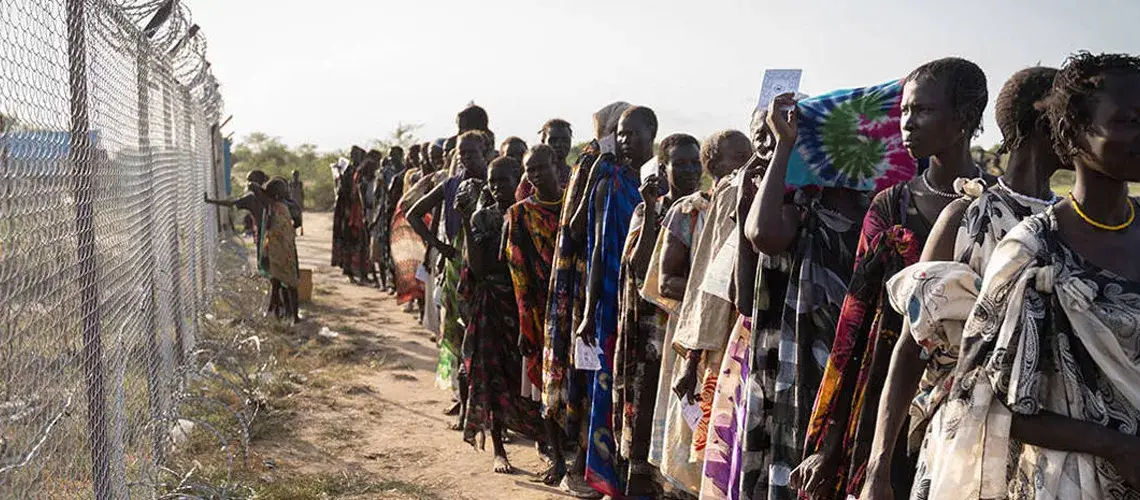The Significance of Participatory and Inclusive Approaches in African Development Interventions: Insights from the Farreach Framework
Development interventions in Africa have often been criticized for their top-down approaches, which tend to overlook the voices and needs of the local communities they aim to serve. The Farreach framework emerges as a transformative model that advocates for a participatory and inclusive approach, ensuring that development initiatives are not only effective but also sustainable and culturally sensitive.
The participatory approach is rooted in the belief that those affected by development projects should have a say in how they are designed and implemented. This method fosters ownership and empowerment among local communities, leading to interventions that are more aligned with the actual needs and aspirations of the people. Inclusive development goes a step further by ensuring that all segments of society, especially marginalized groups such as women, youth, and ethnic minorities, are represented and have equal opportunities to contribute to and benefit from development efforts.
The Farreach framework, with its emphasis on participatory communication and role-player engagement, has shown promising results in various African contexts. By involving community members in every step of the development process, from planning to execution and evaluation, the framework ensures that interventions are not only accepted by the communities but also more likely to be sustainable in the long run. The Farreach 1® Toolkit, for instance, provides a structured approach to engaging role-players, capturing their perceptions, interests, and issues, which is crucial for the success of any development project.
Research has indicated that development interventions that fail to engage communities adequately often result in projects that are either partially successful or completely fail. A study exploring the intersection of participatory communication, role-player engagement, and project proposals found that only a small percentage of development interventions were successful when communities were not effectively engaged. This highlights the critical role of participatory and inclusive approaches in achieving far-reaching impacts and the success of development interventions in Africa.
Moreover, the Farreach framework aligns with the Sustainable Development Goals (SDGs), which call for an end to poverty, protection of the planet, and ensuring prosperity for all. By adopting this framework, development agencies can contribute to the achievement of the SDGs by fostering peace, sociocultural change, and actual development through the effective engagement of all role-players in the intervention process.
Thus, the adoption of participatory and inclusive approaches in implementing development interventions in Africa is not just a matter of ethical practice but a strategic imperative for achieving long-term success. The Farreach framework offers a viable pathway for development agencies to engage with communities meaningfully, ensuring that the voices of the most impacted are heard and that the outcomes of development interventions are beneficial for all. As Africa continues to face complex challenges, such as climate change, health pandemics, and economic inequality, the need for participatory and inclusive development has never been more significant. It is through frameworks like Farreach that development can become a truly collaborative and transformative process.
Exploring How the Farreach Framework Will Enhance Projects’ Success in Africa
The Farreach framework will be instrumental in shaping the landscape of development interventions in Africa. By emphasizing participatory communication and the engagement of all role-players, this approach will lead to several successful projects across the continent. Here are some examples that highlight the effectiveness of the Farreach framework in action:
- Community Health Initiatives: In various rural areas, the Farreach framework will enhance community health outcomes if applied. By involving local healthcare workers, traditional leaders, and community members, these initiatives will improve access to healthcare services and education, leading to better health indicators and increased community engagement in health policy development.
- Agricultural Development Programs: The application of the Farreach framework in agricultural development will empower farmers by involving them in the decision-making process. This will result in the adoption of sustainable farming practices, increased crop yields, and the establishment of farmer cooperatives that will bolster economic growth in agricultural communities.
- Educational Outreach Projects: Farreach framework will enhance educational projects aimed at increasing literacy rates and educational opportunities. By engaging with parents, teachers, and students, these projects will develop curricula that are culturally relevant and responsive to the needs of the community, leading to higher enrollment and retention rates.
- Environmental Conservation Efforts: In the realm of environmental conservation, the Farreach framework will facilitate projects that involve local communities in wildlife protection and natural resource management. These projects will not only help preserve biodiversity but also create sustainable livelihoods for people living in conservation areas.
- Infrastructure Development: The Farreach framework will guide infrastructure projects, such as the construction of roads and bridges, by ensuring that the planning and execution involve input from the local population. This will lead to infrastructure that truly meets the needs of the community and supports economic development.
These examples demonstrate the tangible benefits of adopting the Farreach framework in development interventions. By prioritizing the voices and participation of local communities, these projects will achieve success and make a lasting impact on the lives of many in Africa. For more detailed insights into the Farreach framework and its outcomes, the study published in the Annals of the International Communication Association provides an in-depth analysis.
The success of these Farreach projects will serve as a testament to the power of participatory and inclusive approaches in development. As Africa continues to navigate its development journey, the Farreach framework stands out as a beacon of hope, guiding interventions towards sustainable and community-driven progress.



I’m impressed, I have to say. Really hardly ever do I encounter a blog that’s both educative and entertaining, and let me let you know, you’ve got hit the nail on the head. Your concept is outstanding; the issue is something that not enough individuals are speaking intelligently about. I am very happy that I stumbled throughout this in my seek for one thing referring to this.